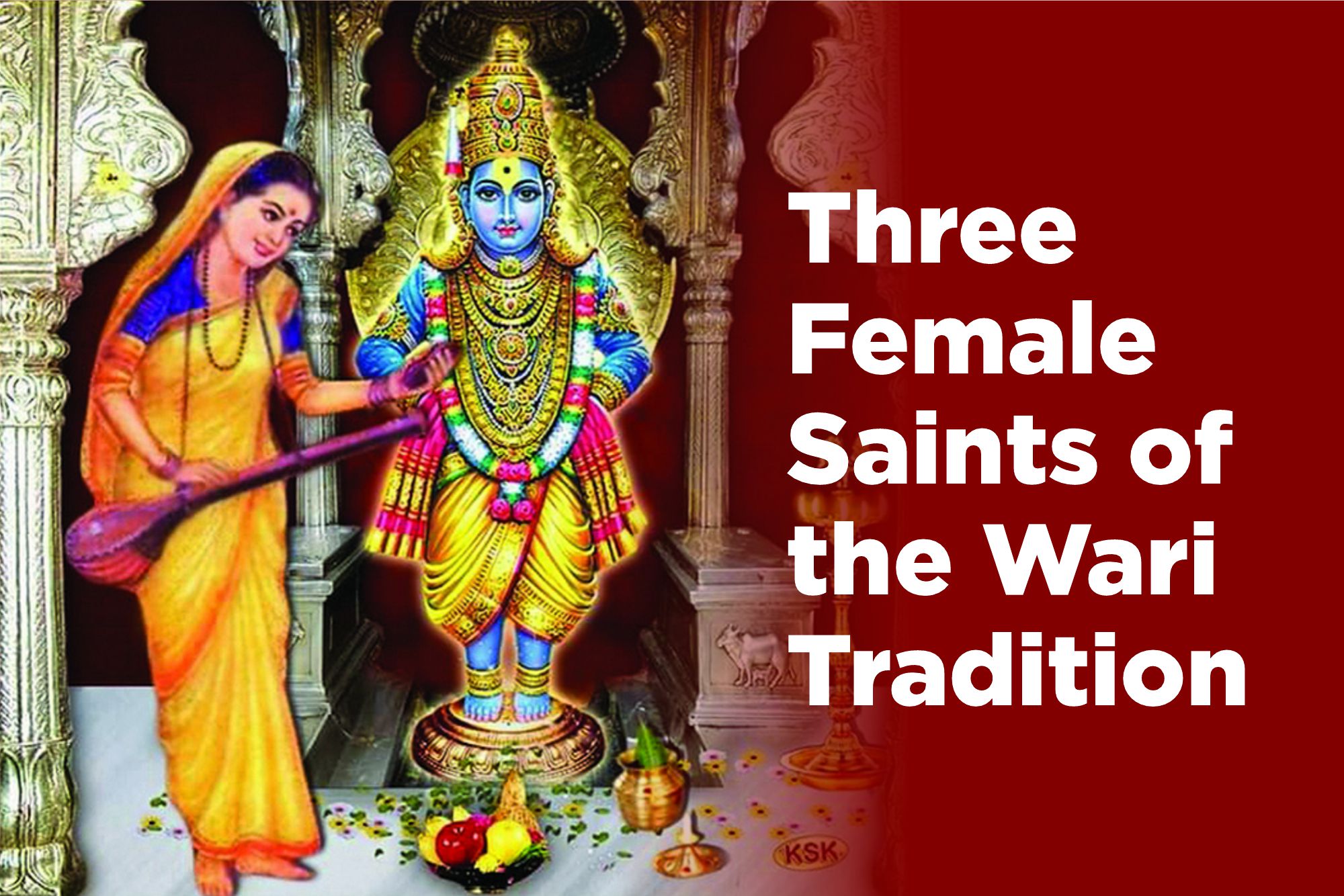Three Female Saints of the Wari Tradition
Three Female Saints of the Wari Tradition : Every year, millions walk in the footsteps of saints, carrying the sacred padukas of Sant Dnyaneshwar and Sant Tukaram from Alandi and Dehu to Pandharpur. While male saints are commonly known, the contribution of female saints in the Wari tradition is often overlooked. Let’s rediscover three remarkable women whose deep devotion, poetry, and spiritual insight enriched the Wari movement.
Muktai
The Enlightened Sister of Dnyaneshwar Muktai, the younger sister of Sant Dnyaneshwar, was a spiritual prodigy who, despite her young age, was deeply respected by saints and seekers. She belonged to the Nath tradition and played a crucial role in shaping her brother’s spiritual journey.
Her verses, known as Abhangs, express the essence of Vedanta in simple, emotional language. Muktai guided not only her brothers but also many other seekers on the spiritual path.
During the Wari, her memory is invoked as the symbol of purity, wisdom, and the quiet strength of women in the Bhakti movement. Even today, many women Warkaris chant their abhangs, finding strength in their lives and teachings.
Kanhopatra
The Courtesan Who Found Liberation Kanhopatra’s story is one of the most powerful examples of inner transformation and resistance. But her heart belonged to Vitthal.
Refusing to give in to societal demands, she chose devotion over disgrace and faith over fear.
It is believed that when soldiers came to capture her, she ran to Pandharpur and merged with the deity at the temple gates, becoming one with Vitthal. Her tomb stands within the Vitthal temple complex, a powerful symbol of self-respect, choice, and divine love.
Bahinabai
The Voice of the Devoted Wife Two saints named Bahinabai are associated with the Wari tradition, Bahinabai Holkar and Bahinabai Chaudhari, but it is Bahinabai Holkar, the disciple of Tukaram Maharaj, who left a lasting impact on the Bhakti tradition.
Living in a conservative household, Bahinabai wrote her thoughts in secret, expressing the struggles of balancing spiritual calling with societal roles. Her abhangs describe her inner battles, torn between her duties as a wife and her love for Vitthal.
In her verses, she openly discusses her arguments with her husband and her desire to walk with the Warkaris. Her poetry resonates with many modern women who juggle multiple roles and seek solace in spirituality.
Conclusion These female saints are not just religious figures; they are voices of resistance, courage, and deep love for the divine. Muktai’s wisdom, Kanhopatra’s defiance, and Bahinabai’s introspection remind us that the path to Pandharpur is paved not just with male footsteps but with the quiet, determined strides of countless women. Their stories continue to inspire Warkaris, proving that devotion knows no gender, only surrender.

